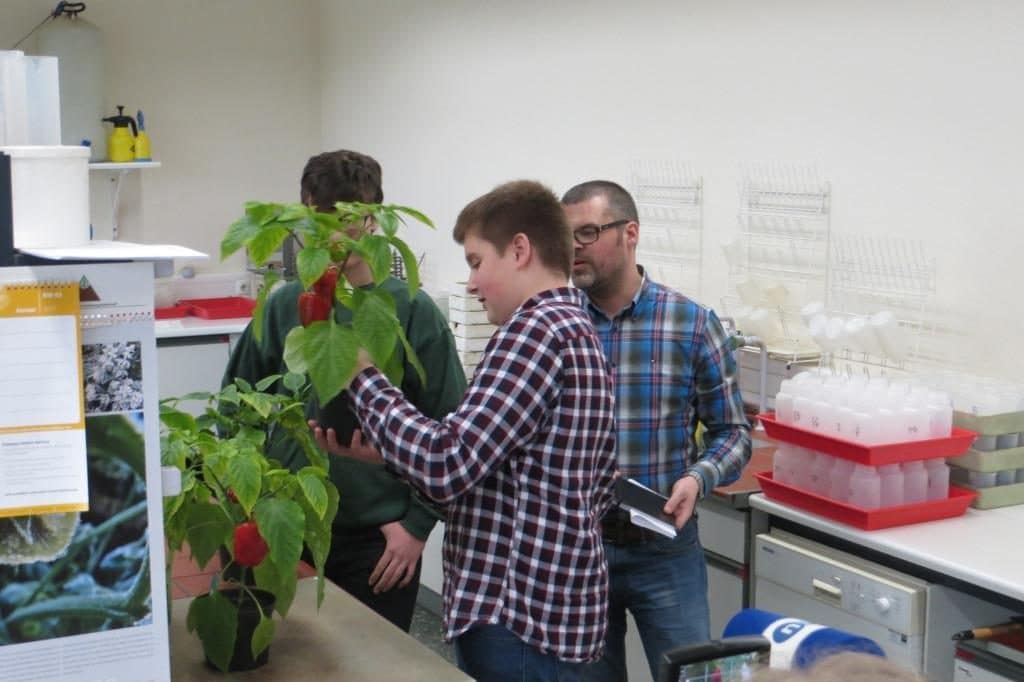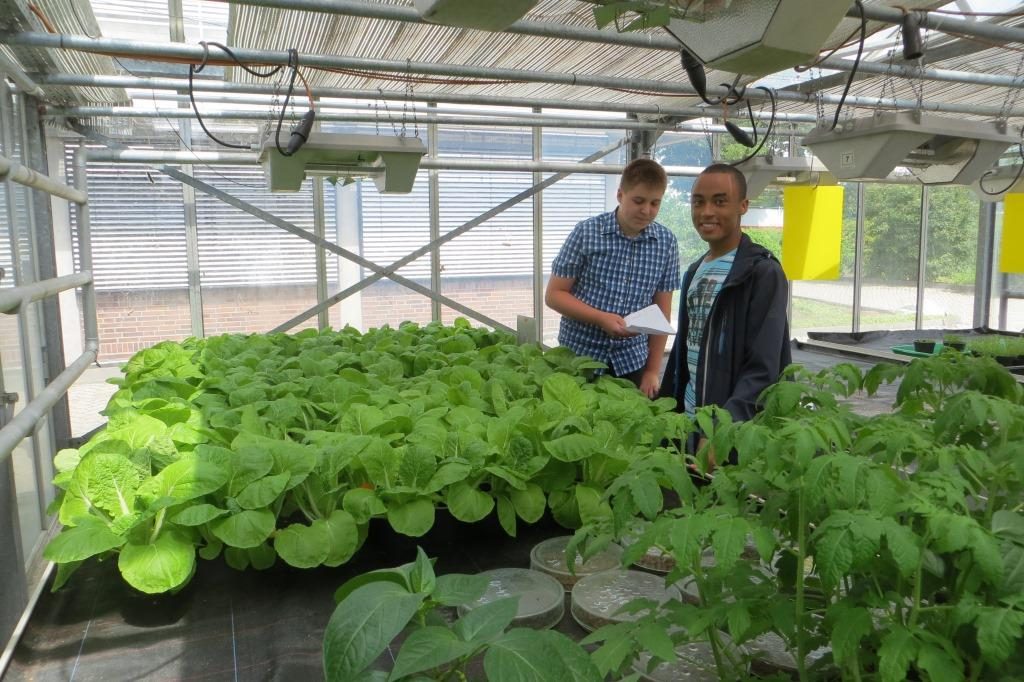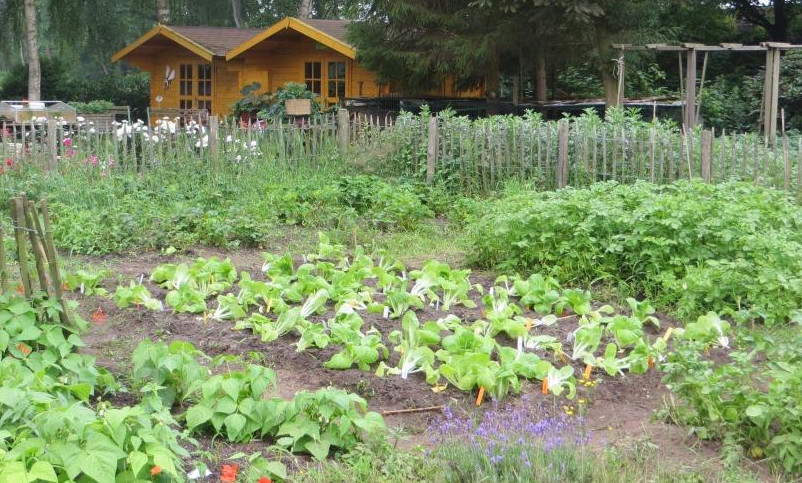Successful performance in regionale round of “Jugend forscht” contest for young scientists
Working mechanisms of effective micro-organisms
Research scientists have to have more than just scientific knowledge ‑ they also need patience. School pupils who continue to work on their projects right through the New Year break prove that they have the necessary staying power. Two pupils of Marianum high school who took part in the competition conducted research into effective micro-organisms and were rewarded for their stamina in the regional round of “Jugend forscht”. Klasmann-Deilmann congratulates them on their success.
The cooperation between Marianum high school in Meppen and Klasmann-Deilmann in Geeste has meanwhile become a tradition. We serve as contacts for the pupils and encourage their scientific curiosity, provide premises and materials and also offer professional assistance. Regina Wilkens is a biology and chemistry teacher at Marianum high school and coordinator for maths, IT, science and technical subjects. She is also in charge of the “Jugend forscht” study group and has already sought our support on several occasions in the past. The first time, back in 2009, the pupils investigated the effect of terra preta (black earth found in the Amazon Basin) on plant growth.

Timo Vähning, Alexander Basenius and Bernd Nordzieke assess the habit of the sweet pepper plants.
During the last school year, Alexander Basenius (9th form) studied effective micro-organisms (EM) together with Timo Vähning (13th form); they conducted experiments in our greenhouse in Geeste and won the regional round of the contest. This year, Alexander tackled the subject again, this time with fellow pupil Njiku Wellmer (12th form).
“In the experiments in the last project, the effective micro-organisms had no effect or even a negative impact on plant growth. Last year, the test plants were grown in a substrate that was composed to suit their needs perfectly,” explained Alexander Basenius. Bernd Nordzieke, a member of our Research & Development Division who looked after the project on behalf of our company, added: “Our growing medium already provided the plant with everything it needed for optimum growth. If you then add effective micro-organisms, it seems reasonable to assume that the results can be explained by the competition for nutrients.”


Four and a half months later, they could begin to evaluate the results and found that the plants that had been treated with the EM preparation did in fact achieve higher weights than the reference plants. The plants treated with the original effective micro-organisms fared better than those that had received the sterilised preparation. These findings came as a surprise to the students, who then set out to find the causes. They decided to conduct further research into the organisms contained in the preparation and their metabolism.
This was the start of a labour-intensive and time-consuming procedure that had to be repeated every few days to select the micro-organisms and keep them alive: Petri dishes had to be filled with the nutrient medium or selective media, inoculated with the preparation and then transferred to the incubator. It was vital not to interrupt the procedure at any time, not even for a holiday such as New Year, so that the students also spent 1 January in the lab.
The selection of nutrient media and the behaviour of the colonies on the different media produced the first findings for the students: a colony raised on fungal agar, for example, failed to develop. They then examined the colonies more closely under the microscope and compared the visual parameters, tested the change in the pH value of the liquid medium and looked for conspicuous characteristics such as smell.

Demonstrate work with inoculation loop and Petri dish at the regional round of “Jugend forscht” – Alexander Basenius and Nijku Wellmer.
The students identified lactic acid bacteria, yeast fungus and red mould bacteria and began to examine their metabolic processes. They came to the conclusion that the effective micro-organisms contained in the preparation raised the pH value of the soil. “In field crops, that is a clear advantage,” said Alexander Basenius, “if the soils are comparatively acidic and therefore not the optimum medium for plant growth. In that case, the effective micro-organisms can neutralise the pH value of the soil,” explained the young scientist. Moreover, nitrate had occurred as a result of the metabolic processes. “That is a typical fertiliser, which means it also has a positive impact on plant growth,” added Nijku Wellmer.
The two pupils presented their findings to the jury of the regional round of “Jugend forscht” in Lingen and performed well: they won first place in the Biology section, which means they will go on to the next round in Clausthal-Zellerfeld in March, where the best contestants from the whole of Lower Saxony will compete. They also won a special prize, the Regional Business Award which Osnabrück ‑ Emsland ‑ Grafschaft Bentheim Chamber of Industry and Commerce has awarded since 2008 to projects designed by school pupils which are both ambitious and also suitable for application in a business environment.
Congratulations to Alexander Basenius and Nijku Wellmer on their successful performance and good luck for the next round.